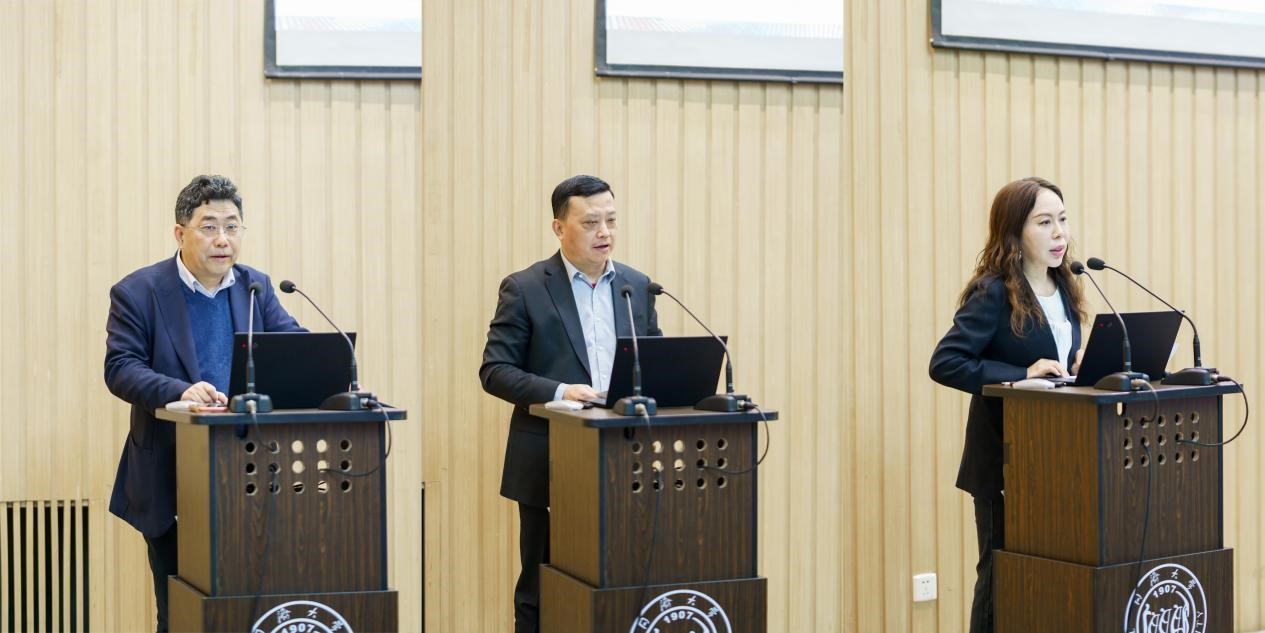Recently, the Academic Symposium on “Translation and Communication in the Age of Digital and Artificial Intelligence” was held at Tongji University. LYU Peiming, Executive Vice President of Tongji University, Huang Yulong, Vice President of the Translators Association of China and Dean of the Academy of Translation and Interpretation, China International Communications Group, and others attended the meeting and delivered speeches. This conference was guided by the China National Committee for Graduate Education of Translation and Interpretation, jointly hosted by the Shanghai Translation Society for Science and Technology and the School of Foreign Studies of Tongji University, and undertaken by the Research Center for National Discourse and Global Communication, a research base of the National Language Commission. It received strong support from Shanghai Yizhe Information Technology Co., Ltd., Nanjing Weiyuren Information Technology Co., Ltd., and GTCOM Information Technology (Shanghai) Co., Ltd. The conference had a total of 9 keynote reports. Experts and scholars who have been deeply engaged in the field of translation technology were invited to jointly examine the new trends of digital intelligence technologies, explore the interdisciplinary research on translation and international communication, and promote the integrated innovation of translation and communication in the era of digital intelligence.

LYU Peiming emphasized that the rapid development of Artificial Intelligence is driving a major transformation in the connotation and presentation of foreign language disciplines, and language research plays a crucial role in responding to this change.
Huang Yulong noted that the deep integration of artificial intelligence and translation practice is profoundly changing the resource allocation in the translation industry. He hopes that the industry will deepen synergy and cooperation with universities and research institutions, so as to actively promote the application of technology in translation and jointly build a new pattern of development for the cause of foreign language translation and international communication. Wu Yun, dean of the School of Foreign Studies at Tongji University, stressed that the school has always adhered to a problem-oriented approach and has made efforts to promote the in-depth cross-disciplinary and interdisciplinary integration of linguistics, translation studies, foreign literature, artificial intelligence, and regional and country studies.
At the opening ceremony, the School of Foreign Studies at Tongji University, Shanghai Yizhe Information Technology Co., Ltd. and GTCOM Information Technology (Shanghai) Co., Ltd. respectively unveiled the establishment of National MTI Postgraduate Education Practice Base and Tongji University Industry-University Cooperation Innovation Practice Base. Both sides will focus on industry-university integration to strengthen the deep linkage between translation disciplines and industries and inject new impetus into enhancing the quality of talent cultivation.
The experts mainly discussed hot topics such as Translation Ethics and Interdisciplinary Integration in the Age of Digital and Artificial Intelligence and Multifaceted Empowerment of Translation Teaching in the Age of Digital and Artificial Intelligence and International Communication and Civilization Exchanges in the Age of Digital and Artificial Intelligence. During the conference, the Award Ceremony of the 7th National Machine Translation Post-editing Competition was also held.

